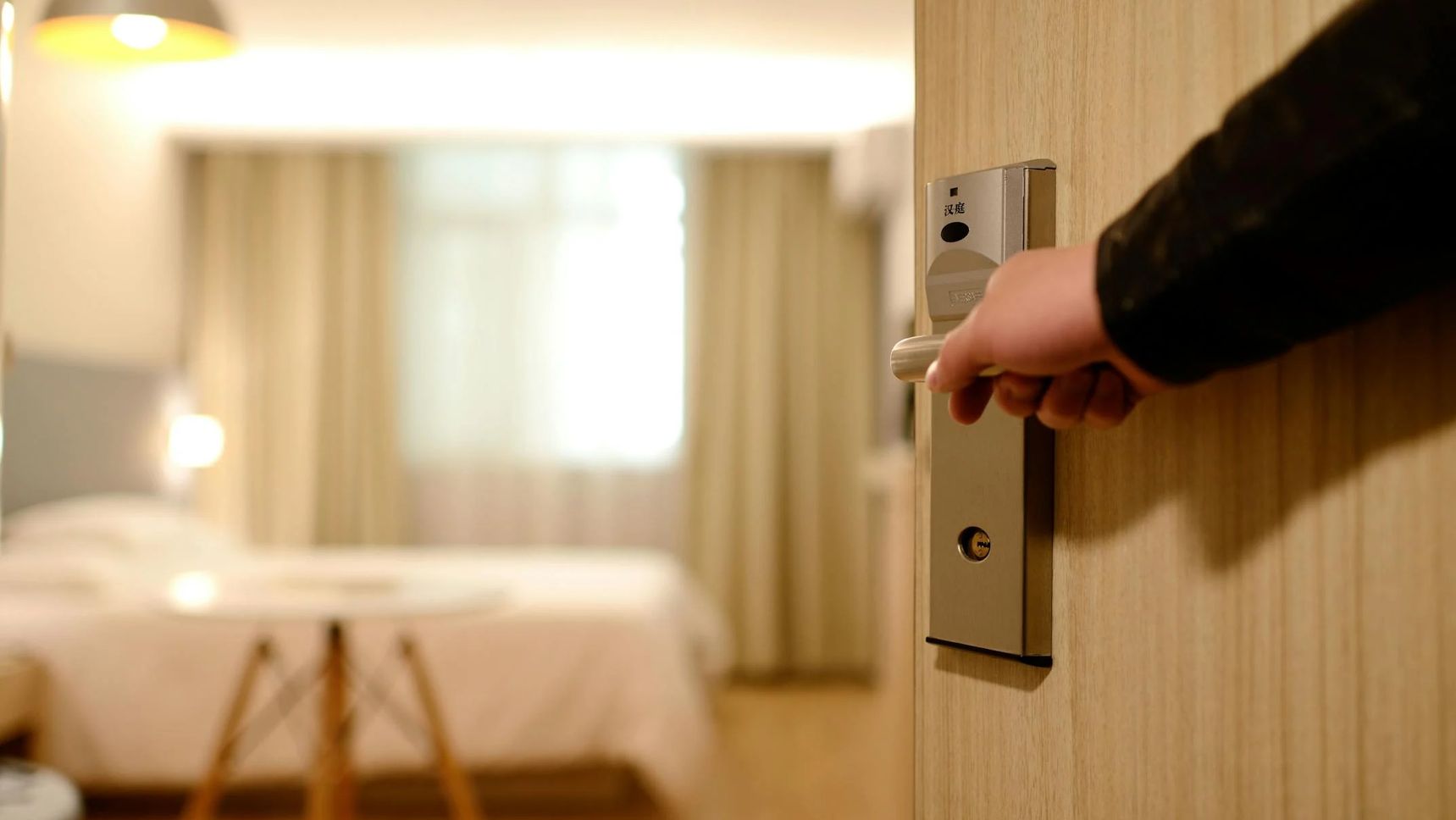
Roger Rosweide
Director Business Development
21 May 2025, 10 min
Digitally transforming hospitality with fast ROI: step-by-step toward higher revenue
Reader's note
Based on an interview with Roger Rosweide and published in collaboration with Emerce, this article has been translated for broader reach. Find the original on emerce.nl.
The hospitality industry faces mounting pressure from rapidly evolving guest expectations and an increasingly complex IT landscape. At the same time, traditional sector priorities—risk reduction and profit maximization—often outweigh innovation.
So how can forward-looking hoteliers keep evolving without getting bogged down in endless, low-yield projects?
Understanding the core: The role of the PMS
To address industry challenges effectively, it's essential to understand how hospitality operations work. At the core of any hotel organization lies the Property Management System (PMS). This system manages availability and bookings across various channels, from a hotel’s own website to travel agencies, Booking.com, and other platforms or intermediaries.
One striking fact: the largest global PMS provider holds less than 10% market share. The landscape is highly fragmented, with significant regional variation, legacy systems, and countless niche solutions. Add to that an ecosystem of tools connected to the PMS—covering housekeeping, maintenance, payments, revenue management, keyless entry, CRM, and upselling—and it’s clear most hotels operate within a complex, often siloed IT environment. While this might work well on an individual level, is there a smarter, faster, more value-driven way?
Balancing continuity and innovation
Hospitality is one of the oldest business models in existence. If the power goes out tomorrow, most hotels can still operate. This underscores how continuity typically outweighs innovation in this sector. As a result, hoteliers often focus on revenue management—maximizing income by adjusting pricing, offerings, and channels in response to demand, timing, and audience.
Smaller hotels often rely on booking platforms to acquire guests, hoping for direct bookings on repeat visits. But turning that into a reality means investing in visibility, strengthening direct channels, and staying top-of-mind through ongoing marketing. These are important but often take a backseat to simply filling rooms—a task that's getting harder by the day.
Guest expectations are shifting rapidly. COVID accelerated the demand for digital self-service. Now, the seamless entertainment and convenience guests experience at home are expected at hotels too. More guests use hotels as a base for work and leisure, not as the final destination. Meeting these expectations means rethinking the entire guest journey—from booking to departure—which demands innovation in both the IT infrastructure (especially the PMS) and the business model. But how can hoteliers make that shift without exposing themselves to unnecessary risk?
Focusing on value
Given the increasing complexity of guest demands and IT systems, you’d expect to see a surge of in-house IT professionals and marketers in hospitality. In reality, most of the focus remains on enhancing the guest experience through service. IT and marketing are often outsourced—and those partners face pressure too. Their work must deliver measurable results.
Should partners charge by the hour, or shift toward value-based pricing? This forces IT providers to think proactively: how can the hotel sector innovate and still see short-term ROI? A compelling example is citizenM’s digital transformation.

PMS migration as a catalyst for business transformation
citizenM is a global hotel brand known for its bold design and strong digital foundation. Yet even they hit the limits of a traditional PMS. Their ambition to fully digitize the guest journey—from booking to checkout—required greater flexibility, speed, and data control.
They chose to switch to an open, modular PMS. Instead of a monolithic platform, they built a modular architecture where each component could be easily integrated or updated. This opened the door for a citizenM app that lets guests manage their entire stay from their phones.
Critically, PMS migration is a business-critical operation. Hotels need to stay operational throughout. citizenM adopted a value-driven agile approach, ensuring that every step created tangible benefits for either the guest or the business:
- Self-service kiosks and app-based check-in/out cut wait times and eased the load on staff.
- Room control via the app enhanced guest comfort and operational efficiency.
- Personalized messages and suggestions based on past stays boosted engagement and repeat bookings.
- Loyalty program integration gave deeper insight into customer lifetime value, resulting in more direct bookings.
- Local tips shared through the app transformed the hotel into a launchpad for full travel experiences.
What could have been a technical migration became a strategic move toward lasting guest relationships and sustainable revenue.
The role of AI
At this year’s ITB Berlin, the spotlight was clearly on three areas: revenue management, PMS, and AI solutions. Naturally, every hotelier wants to know what AI can actually deliver. The growing awareness that high-quality data is critical for AI success is encouraging. But using AI to enrich rather than dilute the guest experience remains a key challenge.
Again, value is the north star. AI becomes useful when it solves real problems for both guest and hotel. Imagine giving your junior sales team automatic access to past booking data for major events—and generating tailored proposals based on that data. The pitch doesn't have to be flashy. If it’s the right offer at the right time, it adds real value.
Business leads the way
In hospitality, business outcomes come first. There’s little room for drawn-out projects without a clear ROI. While today’s complex IT infrastructure and evolving guest needs call for change, transformation doesn’t have to be disruptive. By tying each improvement to guest experience and revenue, hoteliers can innovate incrementally and at the right pace.
This step-by-step approach builds trust among stakeholders. When value is your guide, innovation isn’t a leap into the unknown—it’s a warm welcome home.
Every transformation begins with clarity. Which systems truly enhance the guest journey, and which ones just add noise? Once that’s clear, the way forward becomes obvious. Digital innovation doesn’t have to be risky. Lead with value, and you lead with confidence.
Start small. Think big. Your guest is counting on it.
Contact us and let's get started.